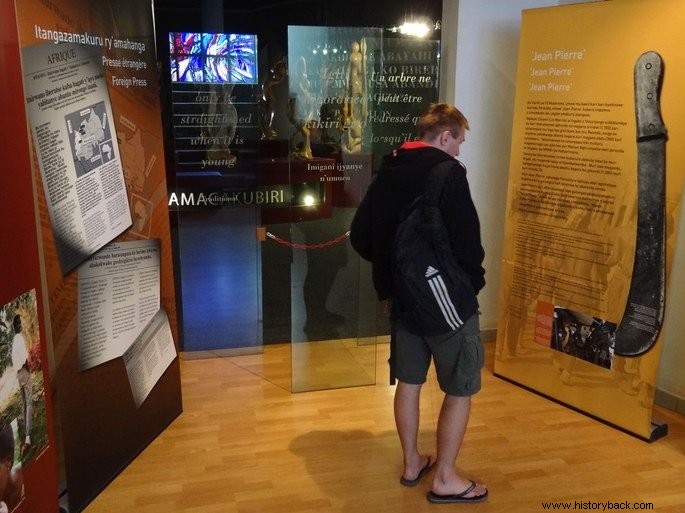The genocide in Rwanda was the mass murder of members of the Tutsi ethnic group committed by representatives of the ethnic Hutu, which took place from April 7, 1994 to July 15, 1994.
The Hutus also killed moderate Hutus and members of the Twa ethnic group.
Rwanda Massacre
On April 6, 1994, the president of Rwanda, the Hutu Juvénal Habyarimana, was assassinated in mid-air on his way back from Tanzania. Hours later, Rwandan Prime Minister Agathe Uwilingiyimana was killed by Hutus from the Presidential Guard.
The attack on Juvénal Habyarimana was never clarified, but the Hutus took advantage and blamed the Tutsis for responsibility.
Thus, these two crimes were the pretext for the Hutu militias to send messages over the radio, calling on the Hutu population to eliminate the Tutsis. Militia leaders promised the killers the victims' property and impunity.
Thus, on April 7, 1994, the hunt for Tutsis began throughout the country. The violence was indescribable and all kinds of brutality were committed against Tutsis and moderate Hutus, who were against the killing or tried to help the Tutsis.
It is estimated that between 800,000 and a million people were killed in 100 days, equivalent to 70% of the Tutsi population.
The international community refused to intervene in the genocide. The United States had been involved with Somalia and had been defeated, so they were not willing to enter into yet another conflict in an African country.
Belgium withdrew from Rwanda after the death of ten Belgian soldiers while defending Prime Minister Agathe Uwilingiyimana. France also withdrew from Rwanda, despite the friendship that united both countries.
The United Nations peacekeeping forces, the "blue hulls", had their strength reduced from 2,700 soldiers to just over 200. This happened because of pressure from the United States.
The massacre ended when the Rwandan Patriotic Front defeated Hutu Power in July 1994.

Difference between Hutus and Tutsis
The most significant difference between Hutus and Tutsis has nothing to do with physical or linguistic characteristics. The issue relates to economic activities and the division of power.
Traditionally, the Hutus were farmers, while the Tutsis, were dedicated to livestock, and in this sense, the Tutsis were richer than the Hutus.
Likewise, the highest positions within the Rwandan kingdom were destined for Tutsis, although the Hutus could participate as advisors.
This ethnic divide, however, was not an impediment for people of both ethnicities to marry or serve in the army together.
From 1916, Belgium dominated Rwanda and, in order to better control the population, the Belgians took advantage of the natural ethnic division that existed in the place.
The Tutsis represented 14% of the Rwandan population, while the Hutus, 84%; and the rest were composed of different ethnic groups such as the twa.
In the 20s of the 20th century, there were several racial theories in Europe, which sought to prove the supremacy of races. With this idea, the Belgians introduced a new concept in Rwanda:there were physical characteristics in the Tutsis that made them more intellectually and physically capable than the Hutus.
Therefore, the Tutsis were given the right to go to school and occupy important positions in the colonial government, while the Hutus were marginalized. In this way, mistrust and rancor between the ethnic groups grew.
In 1962, when the Belgians left and Rwanda declared its independence, the Hutus took revenge and took over the government. This resulted in the flight of several Tutsi Rwandans to neighboring countries and there they formed the Rwandan Patriotic Front.
Several frictions occurred between the Rwandan Patriotic Front, led by Paul Kagami, and Hutu Power, an extremist Hutu organization. In 1994, President Juvénal Habyarimana agreed to sign a peace treaty, infuriating the radical Hutus.
His plane is shot down on his way back from Tanzania and the Hutus felt free to massacre the Tutsis with impunity. With no outside support, the Rwandan Patriotic Front defeats Hutu Power and ends with the slaughter. To this day, Rwandans try to reconcile with their recent past and move forward.
